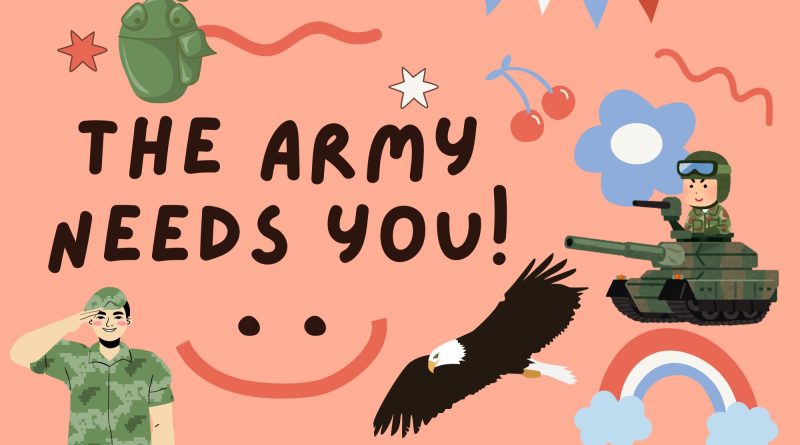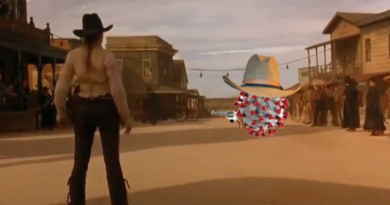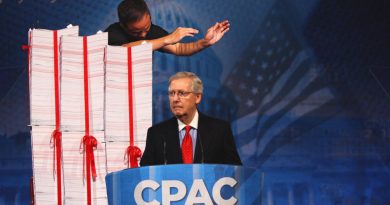U.S. Government Releases New Military Propaganda Made With Canva
By Megan Dang
WASHINGTON D.C. — The U.S. military has just released propaganda designed using the poster editing app Canva.
General Phillip Mencken, upon seeing a Canva college party invite sent to his daughter, immediately raced to his computer and began to experiment with Canva’s invitation templates. “This isn’t some knockoff B.S. like Google Slides or PicCollage, this is the real deal,” Mencken reported excitedly. “Sure, Canva Pro gatekeeps some of the better features, like that little sticker of a puppy wearing a sombrero that I was hoping to use. But I like the hint of classism. Nothing more American than good ol’ patriotic consumerism!”
Mencken decided that the government needed to produce better propaganda when, earlier this year, he noticed that recruitment for the U.S. army had been exceedingly low. “What the hell is wrong with this snowflake generation?” Mencken demanded. “People used to jump at the opportunity to drive tanks and shoot guns in exchange for untreated PTSD and a Dodge Challenger! Stupid kids these days.”
From mass-emailing “U up?” to every high school senior in America, to visiting local high schools and peer pressuring students into doing pull-ups, Mencken and his colleagues had clearly tried everything to increase recruitment rates. They even promised a pizza party for any 18-year-old who was willing to make the extremely low commitment of signing the next twelve years of their life away. They were utterly flabbergasted when nobody seemed very interested in the offer. However, Operation PropaCanva was about to change all of that.
As Mencken color-coded and formatted his image to perfection, he experienced a euphoric satisfaction only otherwise attained by elementary schoolers playing Papa’s Pizzeria for the first time. He finished his Canva creation by adding a subheading informing future army recruits when they could RSVP, reminding them that the military is a BYOB function, and announcing that guys get in free while girls get in with the cost of harassment and systemic sexism.



